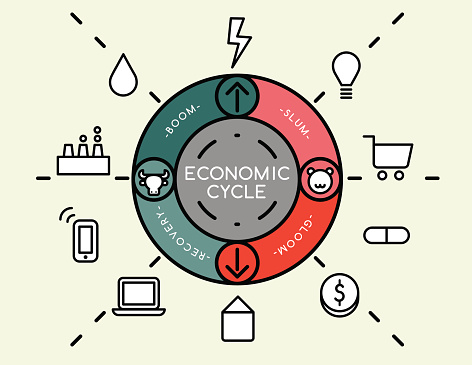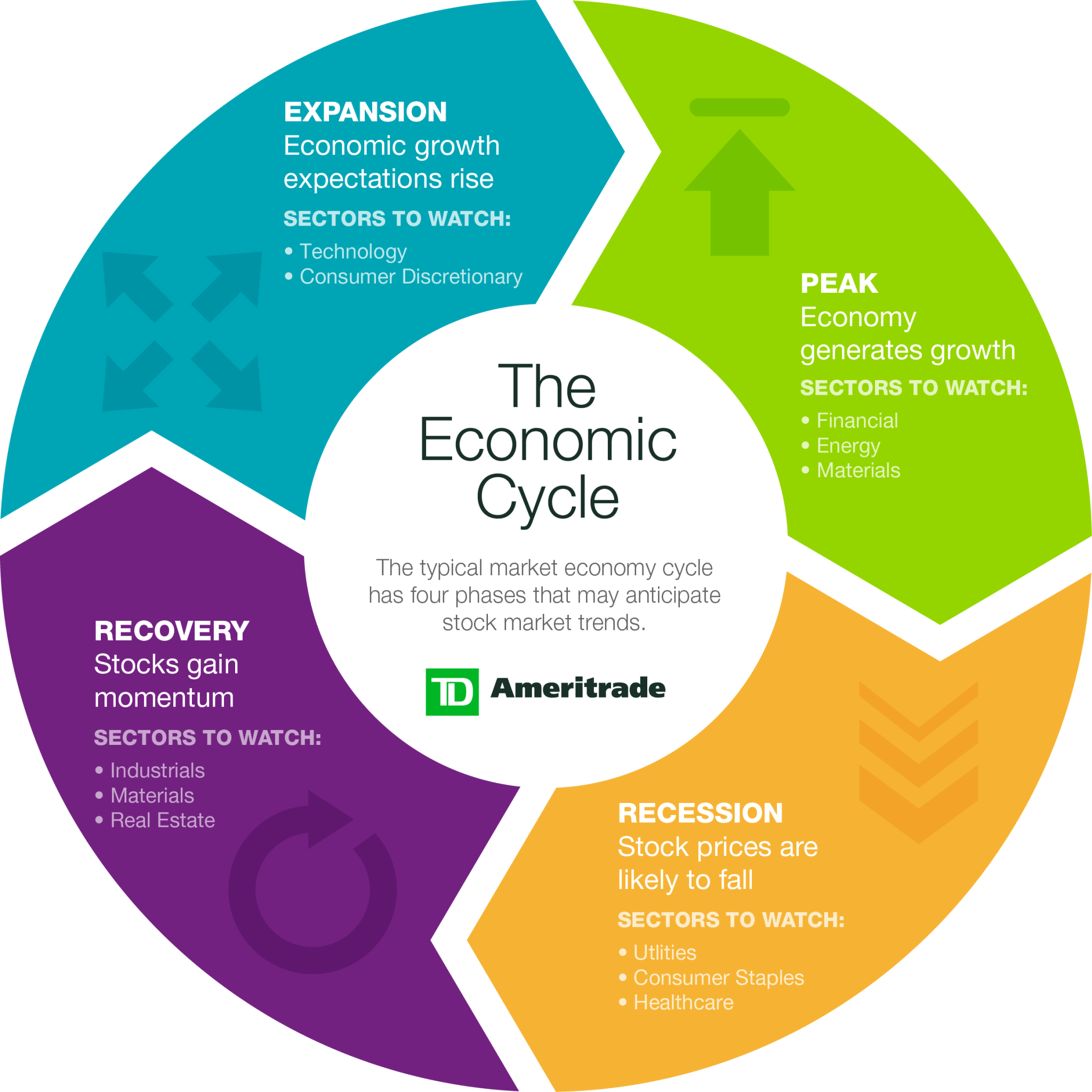All businesses must be able to navigate economic cycles. Businesses must be prepared to manage any cycle, whether it is an expansion, peak, contraction, or trough. It is important to align business strategies with these cycles. This can be the difference between survival, growth, or stagnation –, especially when a recession is approaching. Knowing these cycles can help business owners make quick, informed decisions.
Making Business Decisions During Good Economic Cycles
In these phases, companies should also be aware of changes in market or customer trends. During these phases, it could be helpful for business leaders to create a chart of dollar strength like the DXY. A chart that shows the real-time value of the US Dollar can be helpful to business leaders who want to maximize their investment.

Making Business Decisions During Bad Economic Cycles
When the economy enters a contraction phase or trough, the business decisions will shift to cost-cutting. Businesses will also be looking for ways to improve efficiency and implement risk management in their current processes. It could even be necessary to lay off employees. Market dynamics can change if customer spending power decreases. If competitors offer cheaper alternatives, they may suddenly be a greater threat to companies.
Also, it’s important to remember that different economic cycles have different impacts on different sectors. Cycles in manufacturing can affect production volume, investment in infrastructure, and labor demand. They also impact import/export dynamics. The ups and downs of the economic cycle can have a significant impact on consumer spending in the service sector. In this industry, it is important to have an accurate forecast for service demand. The technology sector is often the most resilient, and it can take advantage of economic shifts. Business leaders should understand the economic cycle in general, but also how it plays out within their particular industry.
In this article, we have emphasized the importance of economic cycles for shaping business strategies. Businesses must develop both proactive and reactive business strategies to help them manage risks and take advantage of opportunities. All business leaders should ensure that their strategies are flexible and resilient.
Remember that the success and survival of any business are often dependent on the ability to adapt and anticipate economic changes. As global economies continue their evolution, so too will the interaction between business strategies and economic cycles. This is why a good understanding of economic cycles, combined with adaptability and foresight, will put you on the path to success in business.







